A Journey Toward Mindfulness
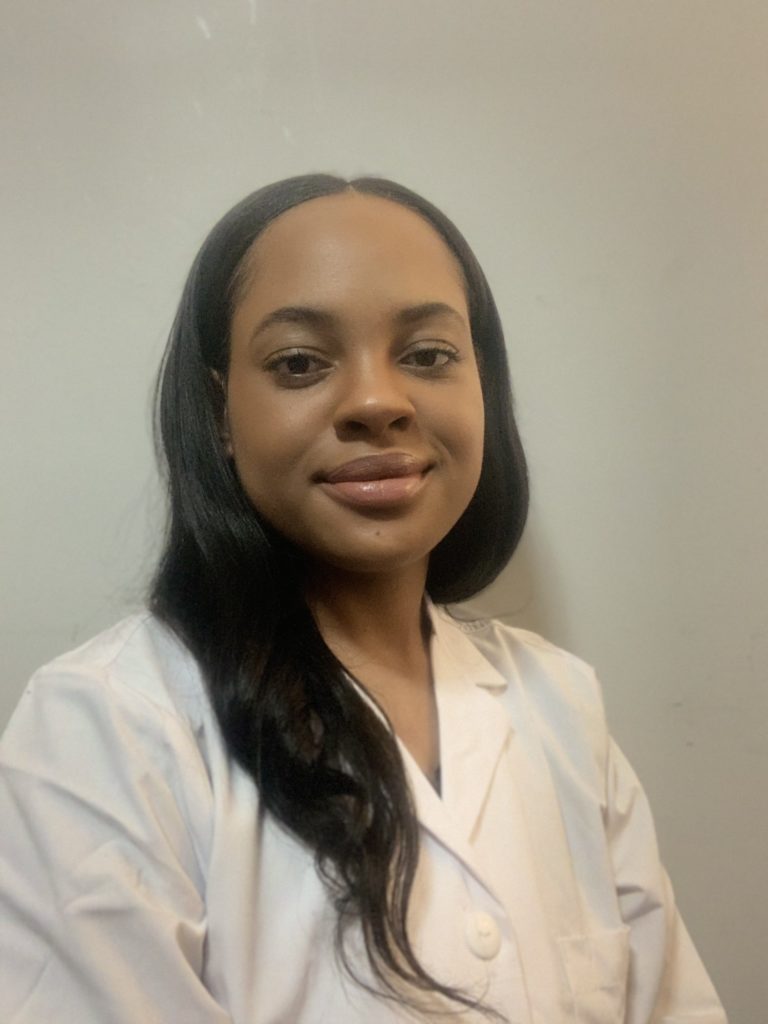
In “A Journey Toward Mindfulness,” Kelsey Robinson, SPT describes the steps she took to turn the effects of a crippling racist remark into a positive force for self-discovery. Rather than holding in her pain and self-doubt, she accepted an invitation to tell her story to young people. “In the process, I found my voice,” she notes. She encourages others to do the same. “Someone needs you,” she states. “The trials you face today will become your strength tomorrow as a clinician.”
The Gift of a Quieted Breath
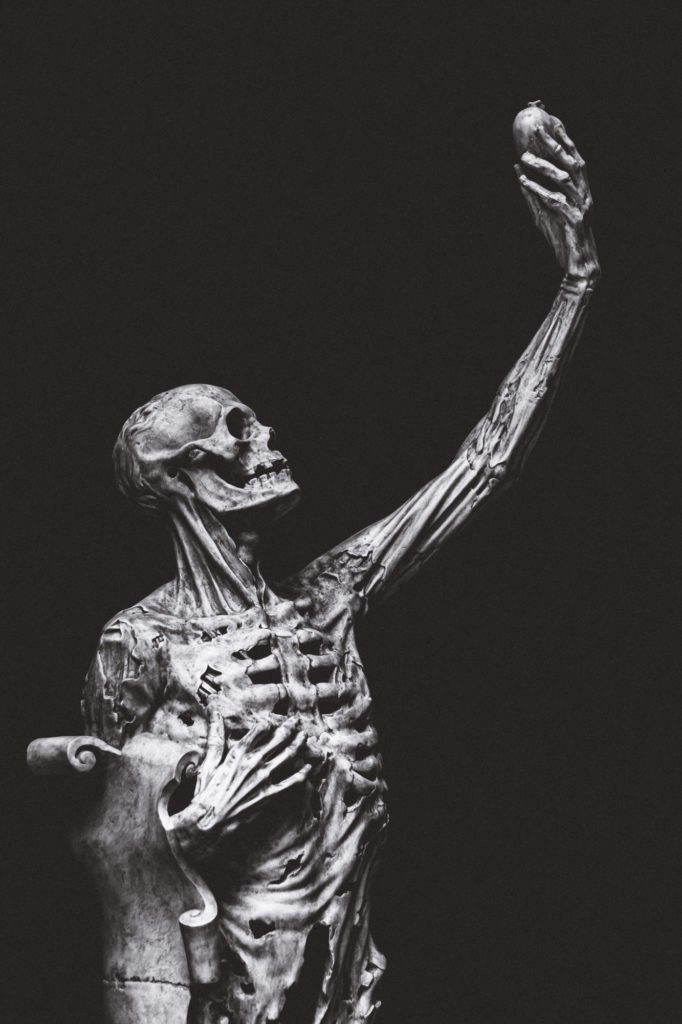
Hannah Vaca evokes an important learning moment in this moving and heartfelt poem, as she reflects on the gift a donor’s body provides and how a donor’s sacrifice impacts the lives of developing health professionals.
Historical Perspectives in Art: The Value of Art History in a Pandemic: Teaching as a Healing Force
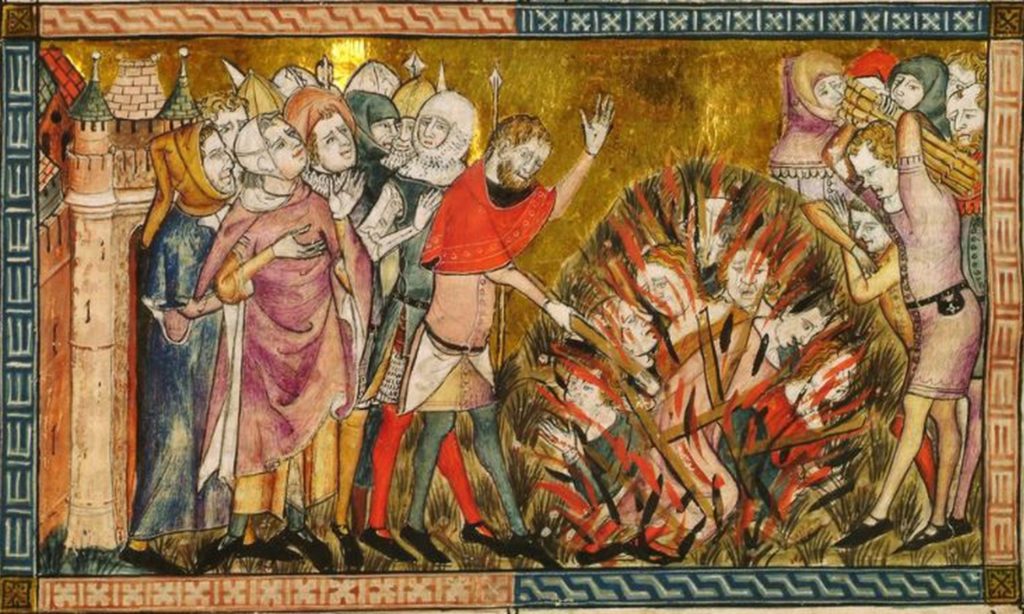
In this powerful reflection, Siobhan Conaty shows how art history as a health humanities discipline can provide two uniquely different (yet equally important) teaching methods for students reckoning with a health crisis. One negative (a critical reading of graphic pandemic images) and one positive (looking to art as a powerful healing instrument), each serves an important purpose. Conaty details the positive approach she recently chose for her students — emphasizing art as a healing force.
The Persisting Values of Humanism, Integrity, and Truth-Seeking
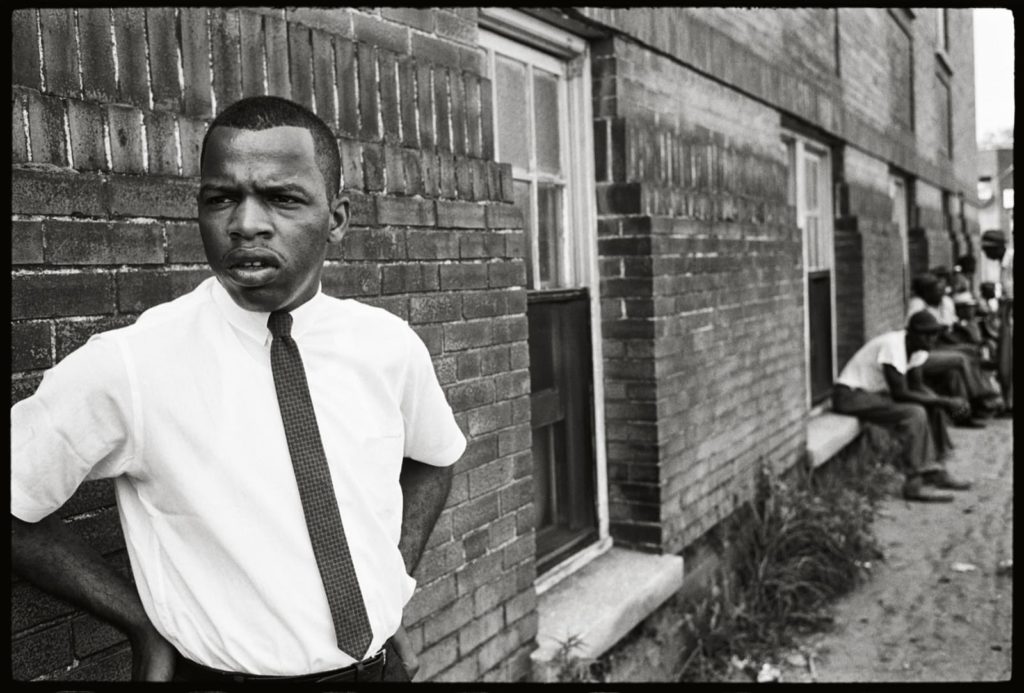
Presenting the Fall 2020 issue of JHR to readers, Editor-in-Chief Sarah Blanton looks deeply into the role of humanities in healing and inspiring a nation facing challenges both physical and societal. Remembering the last words of Representative John Lewis urging Americans to “stand up, speak up and speak out,” Blanton pledges the commitment of JHR to presenting narratives, both personal and collective, that encourage fundamental healing. She introduces with this issue a themed series dedicated to topics of social justice as well as the experiences of people caught in the COVID-19 pandemic. “We believe, in moments like these, that the next right step begins with seeing each other more clearly and using the humanities as a conduit for exploring the lived experience of others.”
Physical Therapy at Bath War Hospital: Rehabilitation and Its Links to WW1
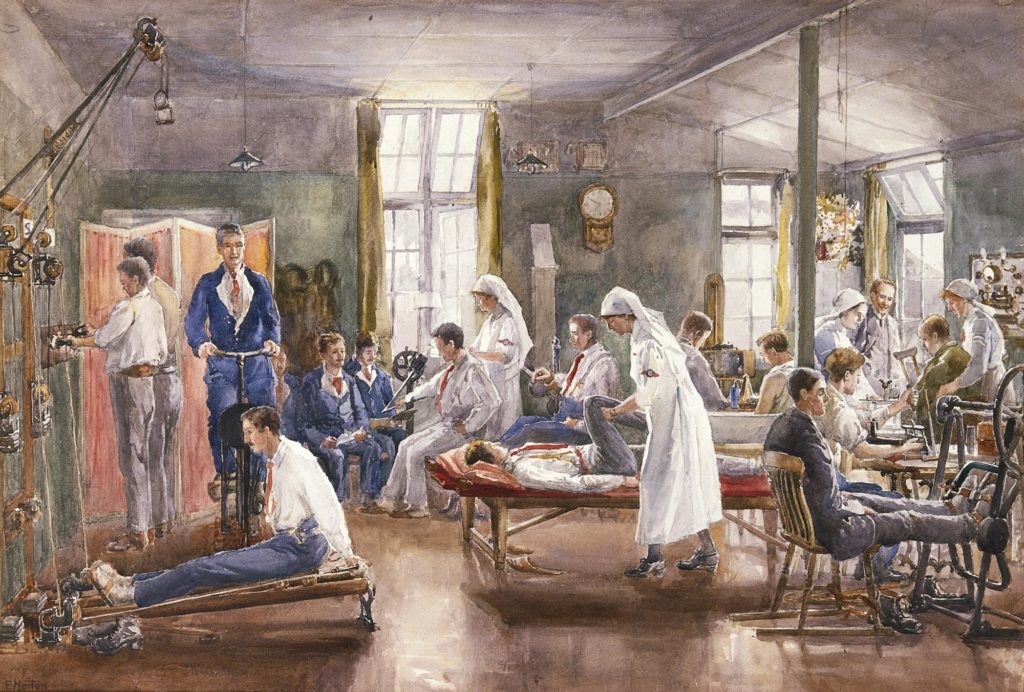
Heide Pöstges, MSc, PT explores the accelerated development of rehabilitation medicine during the First World War (WWI), through the artwork of British painter E. Horton. In the painting, “Physical Therapy at Bath War Hospital,” Horton depicts one of the very first physiotherapy departments in England. As Pöstges analyzes the painting in its historical context, we are given a new perspective into the socio-political-economic aspects of the evolution of physical therapy.
Editorial: Cultivating Vulnerability
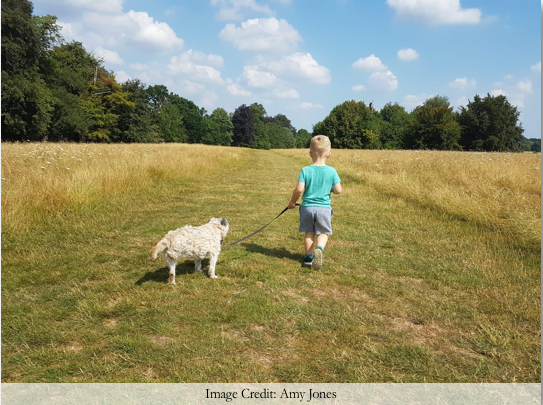
Download the article (pdf) Table of Contents “I cannot find a single example of courage, moral courage, spiritual courage, leadership courage, relational courage…that was not born completely of vulnerability.” Brené Brown, OnBeing Project interview with Krista Tippett, February 8, 2018. In her essay featured in this issue, “Returning Back to Oneself: Cultivating Vulnerability in […]
Using Critical Reflexivity to Enhance Clinical Care: A Clinician Perspective
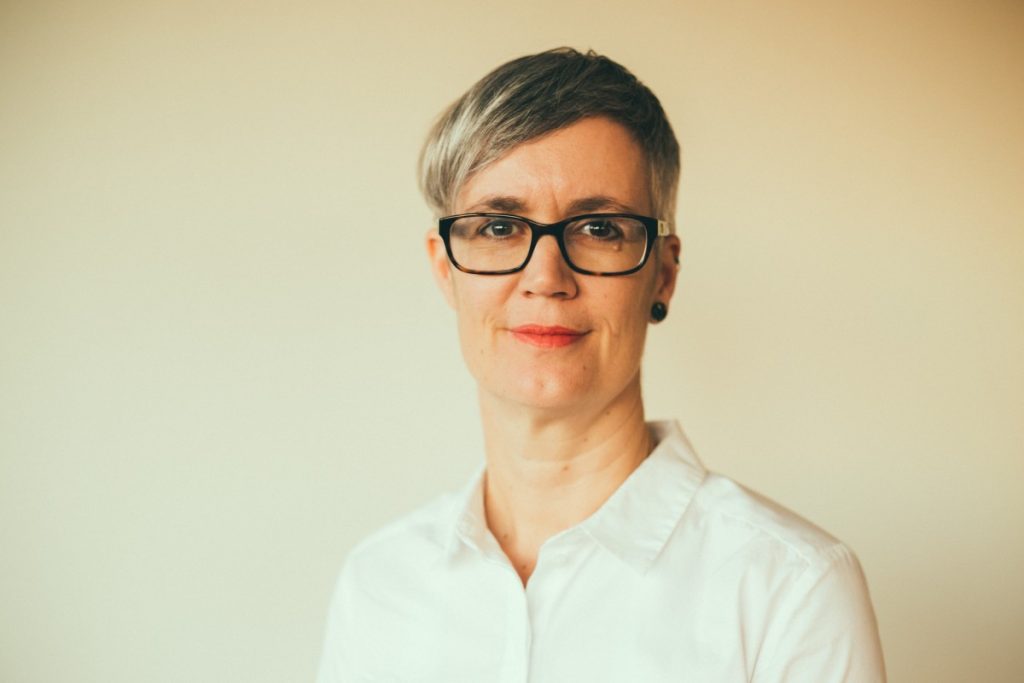
In the Critical Research and Perspectives section, Jenny Setchell, PhD, BSc(PT) and Blythe Dalziel, MScPT illustrate the process of critical reflexivity to examine values and assumptions that underpin clinical practice.
Goodbye, With Love

Amanda Sharp won this year’s CHEP-JHR Student Essay Contest with her essay “Goodbye, With Love,” which reflects on both her personal and her professional experiences with patients in hospice care.
Returning Back to Oneself: Cultivating Vulnerability in the Health Professions
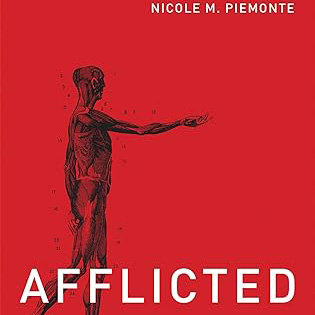
In her essay featured in this issue, “Returning Back to Oneself: Cultivating Vulnerability in the Health Professions,” Nicole Piemonte, PhD reflects on her book, Afflicted: How Vulnerability Can Heal Medical Education and Practice. Using philosophers such as Nietzsche and Kierkegaard as guides, Piemonte seeks to explore why many clinicians experience a “crisis of meaning” in their work. With the primary focus of healthcare education on biologic intervention, topics of vulnerability and the lived experience of suffering are largely minimized, if not absent. Piemonte calls for us to create a learning environment that recognizes vulnerability as a means to cultivate the courage to authentically engage with human suffering.
Stone Tongue
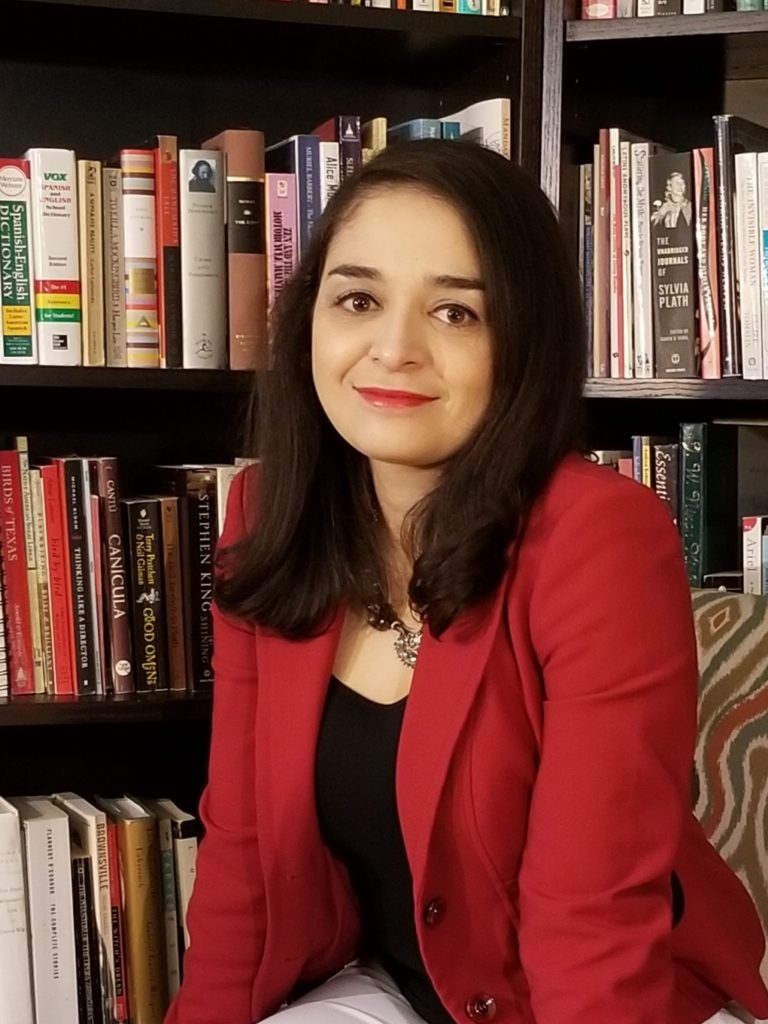
Download the article (pdf) Table of Contents The doctor observes.My son’s green-marbled eyes peerup at her. His kitten lips squirm,open, and leaden consonantsstripped of vowels fall out,more stone than speech. I read aloud to him:“What does the cowsay to her baby?” The doctor explains,“Sound begets speech.”My son with the stonetongue sits at the bottomof a […]

